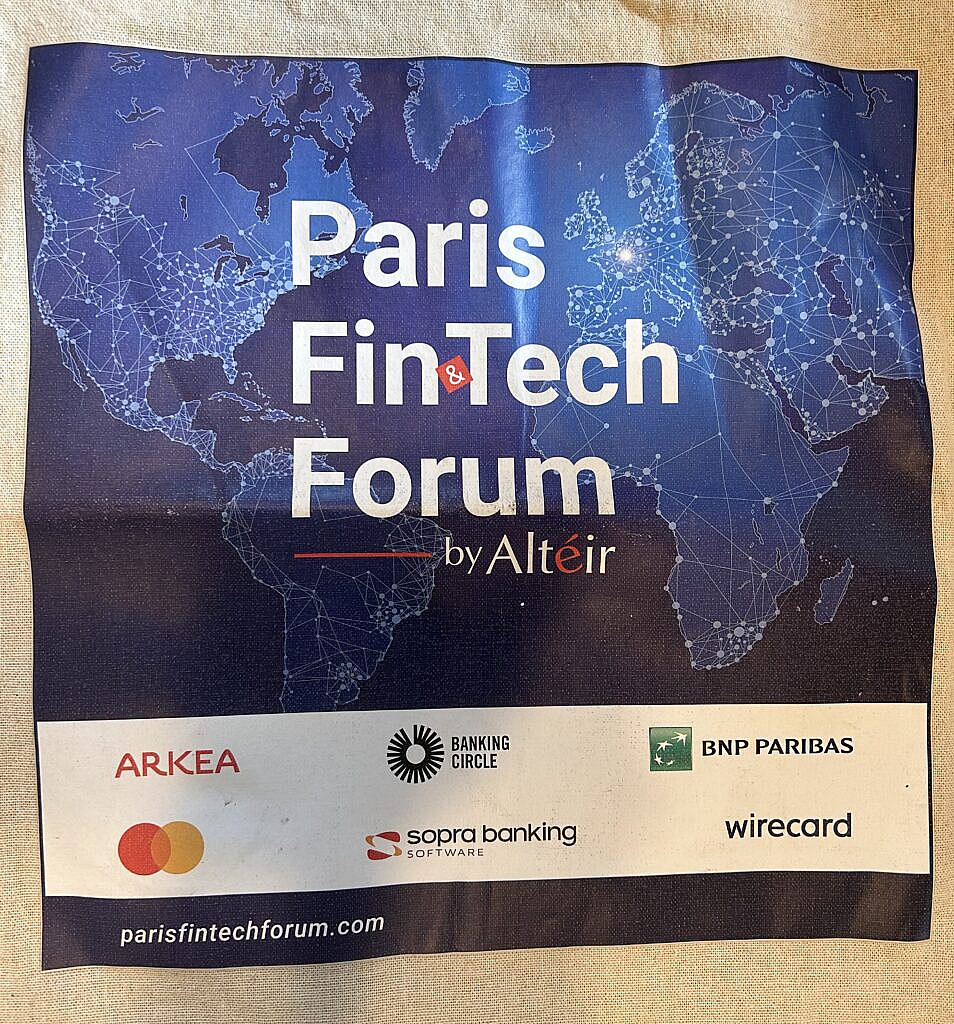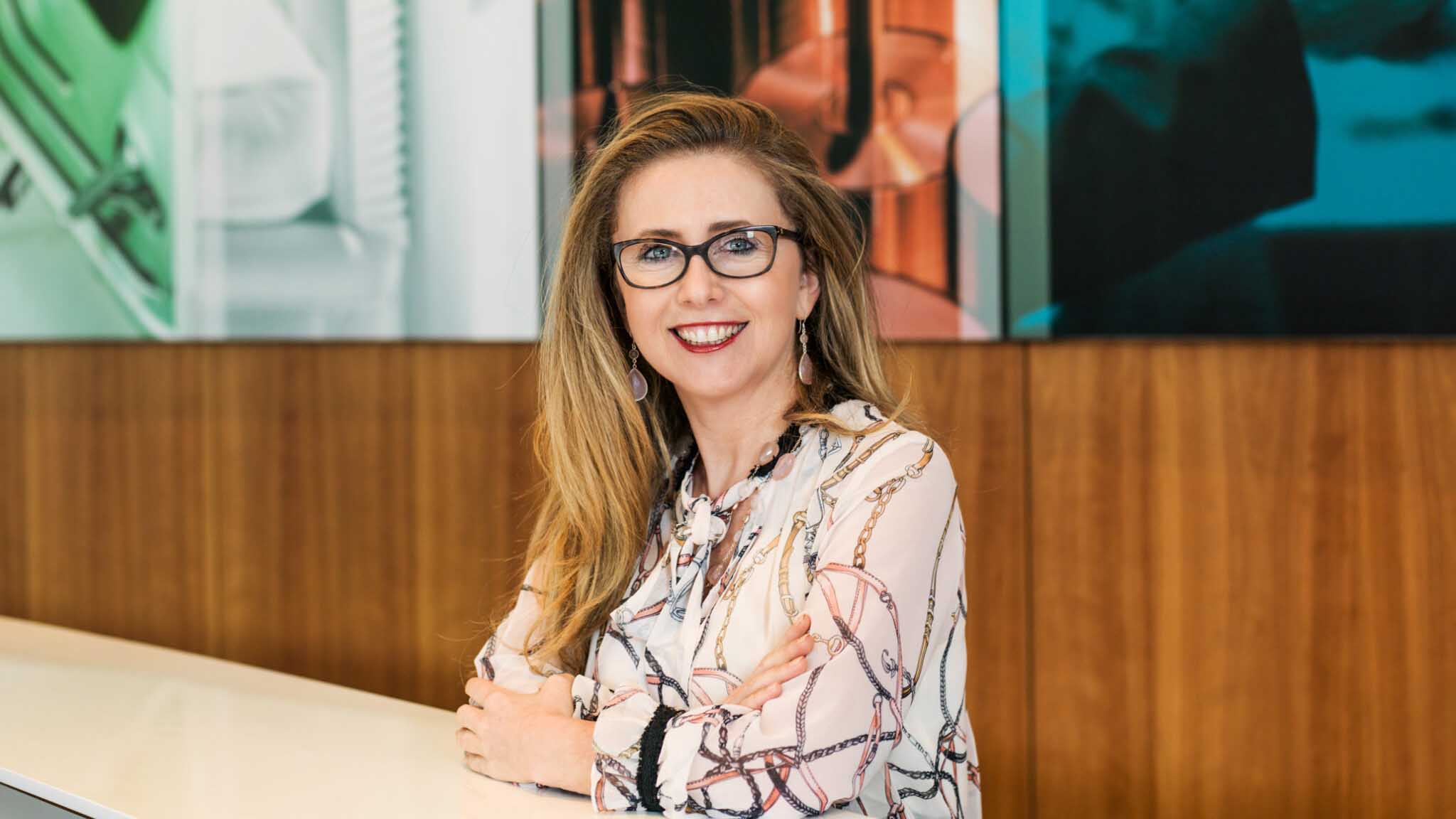I have been an enthusiast participant in fintech conferences, usually as an attendee but occasionally as a presenter, exhibitor, promoter, or programmer, for nearly 25 years. These events have taken me to seven U.S. states and four countries.
I’ve attended for a variety of reasons, but now it’s primarily to see new startups and to network. Some of the people you’ve read about in this blog I first encountered at a conference. I’ve attended Finovate more than a dozen times, Boston Fintech Week five times, and every Paris Fintech Forum, but I’ve never been to Money 2020.
Most conferences were cancelled during the first year of the pandemic but then came back with virtual offerings in 2021. There are some advantages to going virtual. You can attract a more global group of speakers and attendees because no one has to travel. Eliminating travel costs may mean that more junior people are able to attend. But there are downsides to virtual and even hybrid formats, particularly when it comes to networking.
When we resumed conferencing in person in 2022, it seemed to me that something had changed. Conferences seemed smaller. Some were pricier. I saw fewer innovative startups and more people from incumbent firms. Had travel and event budgets changed? Was the cause the downturn in fintech funding? Or the maturity of the fintech industry? Did we no longer feel the need to connect in person?
Clearly something is happening in the conference business. The MIT Fintech Conference, which was routinely excellent, disappeared this year. Fintech Nexus discontinued its spring event and is transferring its sponsors, exhibitors, and attendees to Fintech Meetup. And, the Paris Fintech Forum has very likely held its last large-scale event.
To explore the topic, I’ve put questions to a variety of people with unique perspectives on conferences, including organizers, sponsors, and attendees. They are:
Amélie Arras — Marketing Director at Zumo, a B2B digital assets platform, and Mentor at Rise (created by Barclays) who has travelled over 16 countries paying only with digital currencies.
Sarah Koch – Director of Marketing & Communications at European payments firm Aevi.
Ron Shevlin — Chief Research Officer at Cornerstone Advisors, Author of the Fintech Snark Tank on Forbes, host of the What’s Going On in Banking podcast, and a frequent speaker on digital banking topics.
Scarlett Sieber — Chief Strategy & Growth Officer for Money20/20 where she leads global product strategy. She is also an international speaker, board member, and Forbes Contributor.
Sarah Biller — Founder of Boston Fintech Week and co-founder of Fintech Sandbox, which organizes this annual event. She is also Executive Director of Vantage Ventures, a board member, and a Forbes Contributor.
Q. Is my thesis correct? Have fintech conferences changed in the last few years?
Sarah K.:
I couldn’t agree with you more about the changing conference scene since the end of COVID lockdowns.
The pandemic has significantly impacted the economics of the business, leading to some conferences getting smaller, while others have disappeared altogether.
Furthermore, it’s evident that the setup has undergone a dramatic transformation. In the past, the focus was primarily on having large, shiny booths equipped with screens and various interactive activities on the show floor to engage with attendees. This has shifted. The pandemic and subsequent lockdowns, which restricted face-to-face interactions, have accelerated the desire for genuine networking and interpersonal connections post-pandemic. People are eager to meet again without masks or transparent barriers, longing for the opportunity to shake hands (often complemented by the now-popular giveaway of “branded hand sanitizers”). Attending fintech conferences is now primarily about building relationships, networking, engaging in conversations, and, on occasion, gaining valuable insights. Let’s be honest; the educational aspect can be more effectively accomplished online. Online platforms allow attendees to pause presentations, revisit content, and take notes, enhancing the learning experience.
Amélie:
Yes, they have indeed changed. The pandemic and broader economic factors have significantly impacted both event organisers and fintech companies. Organisers are grappling with increased costs and losses incurred during COVID-19. At the same time, fintech firms, after enjoying years of abundant investor funding and growth, now face reduced marketing budgets and need to focus on revenue and profitability.
I wasn’t a fan of the online events that proliferated during the pandemic. There was an initial surge in participation, but interest waned as the novelty of digital gatherings faded, and the intrinsic value of face-to-face interactions became evident. However, the conference landscape is evolving. Money20/20 Europe 2023, for instance, was noticeably busier than the 2022 edition. This revival of in-person engagement is marked by a focus on delivering added value to exhibitors and facilitating high-quality networking.
The downsized Fintech Forum in Paris is now offering superior, almost elitist networking opportunities. Enhancements to meeting booking apps and facilitated introductions are enriching the attendee experience, signaling a shift towards balancing in-person interaction with evolving participant and sponsor expectations.
Ron:
I do agree that fintech (and, more broadly, banking) conferences have changed. They have become—for better or worse—more oriented towards “sales” than “content.”
The business model for many conferences is monetizing through sponsorships (vs. monetizing through attendee fees). The conference’s value proposition (to the sponsor) is “we’ll get prospects here for you.”
In the past, the emphasis was usually more attendee-oriented, with a value proposition of “we’ll have great content for you to learn.”
Scarlett:
Live events are constantly evolving to meet the needs of customers – or at least the best ones are. Looking back over the past 12 years since Money20/20 launched, it is our ongoing innovation and focus on the customer and the industry that has been the key to our success and growth.
That said, the pandemic has definitely caused some shifts. Customers are even more focused on getting the most out of live events to connect and do business. We have seen overall meeting levels at our Money20/20 shows soar. People are being more particular about what events they go to and are organizing their schedules weeks ahead to make the best possible use of their time.
Business starts with people. This is true for startups of course who differentiate in the marketplace by their founding team, but it is applicable across the industry. The pandemic made people really focus on the importance of in-person interaction. As the song goes, you don’t know what you’ve got ‘til it’s gone! From the minute we brought the shows back in 2021 this shift became crystal clear. People had been starved of meeting people face to face and they have made it their priority.
Post-pandemic, we’re also approaching our live event content differently to respond to the digital content overload of 2020 and 2021.
Across all editions of Money2020 (Europe, US, and looking ahead to our Asia launch in 2024) we have redesigned every single stage, and every type of content that we produce. For example, we are seeing an increased desire for short-form content where people can stand and watch, move around, get a coffee — or this being Money20/20 — a cocktail. And when our delegates want to go deep, they want to really go deep and get immersed in the topic.
Our industry is constantly evolving and different parts of it have different needs. We have really prioritized meeting people where they are — are you a mid-tier banking exec that wants to hear real use cases of tech transformation? We have a small, off the record session for you. Want to hear from the regulators in front of a broad audience their opinions on the latest changes? There is space for that. We also recognize the value of entertainment. Take our Sunday Night Live stage — our first night launchpad for the Vegas show. We’ve blended our in-depth industry content with a slick entertainment format to create an unmissable experience.
Money20/20’s whole mission is to be the place where money does business and we’ve reoriented and redesigned our whole product since the pandemic to absolutely make it the best place to get business done.
Sarah B.:
One of my favorite authors, Antoine de Saint-Exupéry, wrote “A pile of rocks ceases to be a rock pile when somebody contemplates it with the idea of a cathedral in mind.” There is no better description of a fintech entrepreneur across the last ten years than this in my mind. Extending the arc of innovation in financial services — like picking up rocks — is grueling work and it absolutely cannot be done alone. It requires diverse capabilities as much as a supportive, connected community willing to share their lessons. Unlike conferences, this was our thesis for creating Boston Fintech Week and it remains so today.
Q. Do sponsors want something different from fintech conferences now?
Sarah K.:
Over the past three years, we have engaged in internal discussions to chart our course for future conferences. We still place great value on fostering meaningful interactions between people, but we question whether these interactions require an expensive and large-scale conference that costs us around 3000 EUR per ticket. We are beginning to doubt it…
Sponsors want to get the most bang for their investment. Splurging on an event and merely slapping their logo on the big screens at the main entrance? No, that’s not cutting it anymore! When it comes to event sponsorship, it’s all about getting folks to the party. It’s about showing up, talking on stage, being seen (maybe with more than just the regular 2 C-level people) and not just having your logo on the breakfast menu. What sponsors really value is people, people, people.
Amélie:
Sponsors’ needs are evolving. Reduced marketing budgets and shifting objectives have placed marketing teams under intense scrutiny. Traditionally, especially for those without a background in sales and marketing, the value of conference participation was somewhat intangible, as it is rooted in a mx of brand awareness, lead generation, and relationship nurturing. Business stakeholders are now more critical, evaluating the tangible value delivered by event sponsorships, especially in the startup and scale-up environments. As a result, sponsors are seeking increased collaboration and personalisation with event organisers to align event participation with concrete, measurable objectives.
To give you an example, at Sibos in September 2023, Zumo observed a reduction in competitors, underlining our sustained market presence. When focus on cost per acquisition and tangible results from event sponsorships is intensifying, the challenge is to advocate how do you put a value on brand equity, which itself is signaling leadership?
Q. Are companies rethinking their approaches to conferences?
Sarah K.:
As mentioned earlier, while face-to-face interactions remain invaluable, we are of the opinion that the traditional massive presentation booths and extravagant setups are no longer essential to achieve two critical objectives: demonstration and persuasion.
Marketers are reevaluating their budget allocations. The spending on events will now lean more towards tickets, perhaps a dinner outside the conference with key partners or potential clients.
Moreover, businesses are increasingly focused on deriving and delivering value from these conferences. They are actively working on producing thought leadership pieces to share their knowledge with the industry and exchange best practices, recognizing that no one can succeed in isolation. Collaboration and knowledge sharing are now key in the game.
Amélie:
Indeed, they are. With financial constraints, the return on investment from event participation is under the microscope. Investors are questioning the value derived from the leads generated over the years. This scrutiny is fostering a shift towards sustainable marketing, emphasising CRM activation and community building.
Bearing this in mind, one of the more sustainable approaches to conferences is for companies to create their own. A prime example of this is SWIFT, who annually hosts Sibos, a highly successful event. There are also examples of smaller-scale companies executing well-crafted conferences, such as CCData in the UK, which hosts the Digital Asset Summit. These tailored events offer companies more control over content, audience, and overall experience, aligning closely with their specific business and marketing objectives.
Q. Has what we want from fintech conferences changed?
Scarlett:
It is continuously evolving — and it’s not just fintech conferences. Customers want great experiences — whether that is a business event or a consumer event — a change driven in part by the pandemic but mostly due to higher expectations from customers. We’ve seen that happen over the past five years. Customers no longer have different expectations from a business event than from a consumer one.
That’s why at Money20/20 we are benchmarking our experiences against those consumer brands we all love — we absolutely believe (and our data supports this) that doing business and meetings are at the heart of what customers want but it’s also about building the best possible conditions for real, human and yes, commercially valuable connections. People are people at the end of the day and time and time again, business gets done by people meeting over a shared love of music, coffee, etc. Our job is to deliver a first-class event to do business, and that also means a great experience these days.
We are also focused on value. It is about meeting the right companies and people at the right time, at scale. Customers are more value focused than ever before and want to understand their return on their investment. Measuring ROI from events is going to become more important over the coming years and we are working on innovations around how we can support customers even more in this area.
Sarah B.:
From our experiences with Boston Fintech Week, we see an increased demand for networking. This is a modest observation but one that holds when we consider the success of fintech meetup.
Q. Has the value of appearing on stage changed?
Ron:
Depends on who you are. For people who make money through speaking fees, the value of appearing on stage hasn’t changed. But with many conferences now requiring “pay to play,” the value of being on stage isn’t as great as it once was if you have to pay to be there.
Q. What’s the future of fintech conferences?
Sarah K.:
This closing question really nails it, wrapping up everything we’ve talked about. So, when we think about the future of fintech conferences, it’s pretty clear that they will be all about going hybrid. We will see physical events for those face-to-face chats, shaking hands, and all the networking. Then, on the virtual side, that’s where we’ll see some serious action with demos and educational talks.
Also if we now think about virtual experiences – especially for physical products – you can showcase something like a POS terminal in a virtual space, no need to fuss about shipping and logistics.
But the big deal will still be it – networking. It will get deep and focused, maybe with a little help from AI tools to connect you with businesses you wouldn’t have thought of meeting. We all know there’s a need for change, to find that sweet spot between getting value and keeping costs in check.
As a marketer, I can’t even imagine a world without fintech conferences. But I’m seriously excited about what the future holds and the awesome innovations we’ll see in this space.
Amelie:
Predicting the future is always a challenge, yet it’s evident that a transformation is unfolding. Event organisers are innovating, facilitating more personalised, one-on-one interactions. Feedback on the “speed dating” models and tailored buyer-seller engagements at conferences has been positive. The future is likely to be a blend of intimate, high-value interactions and broader, traditional networking opportunities, meeting the evolving preferences and expectations of participants.
Ron:
There’s no one future of fintech conferences. There will continue to be: 1) behemoth conferences like Money 2020 which attract thousands of attendees and hundreds of sponsors, and 2) content-specific conferences (e.g., AI, payments, etc.). One newer development will be more conferences like Fintech Meetup, which is more networking-oriented than content-oriented (that said, it does seem to be moving more in the content direction).
Scarlett:
The future of fintech conferences centers around connections, insights, and experiences. The future of live events is so bright, in fintech and across other sectors. The best events for business will become even more crucial through disruption and change – as that is exactly why the industry ecosystem needs to come together and debate the issues, solve the challenges, and ultimately drive progress. We have seen that happen at Money20/20 as our shows have grown post-pandemic. People have said that we set the pace of where the industry is going and we take that responsibility very seriously.
Those that offer products that are truly customer first will prevail. As Money20/20, we always strive to keep listening and keep evolving, the bar has been raised very high in terms of what customers expect.
We are the place where the industry does business globally and staying focused on that is key. We have to ensure we have everyone from across the financial technology ecosystem at our shows and that their experience is the best it can be. For us, that means ensuring that we have true fintech experts on our team coming from across all parts of the industry- journalists, analysts, researchers, VCs, bankers, product, marketers, and beyond. We match that with experts from outside the industry who are the best in their craft, whether that be sales, operations, data, finance, design, etc. In 2022 USA and in Europe 2023 we have seen record uplifts in our customer satisfaction scores by listening and responding to what customers want. We believe passionately in surprising customers – the business of money is important. And at Money20/20, it’s also fun!
Sarah B.:
It appears to me that fintech is on a similar trajectory to the life sciences sector where innovation is not generalizable. Instead, it occurs (at least for now) because deeply knowledgeable specialists are introducing new capabilities. Take for instance banktech…that we are embedding financial services today in companies in every industry is because extremely knowledgeable bank executives who understand our complex, federated banking regulations are building enabling technologies. I expect conferences will follow this trend and become much more focused as opposed to a one type fits all.
# # #




